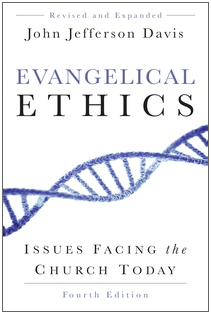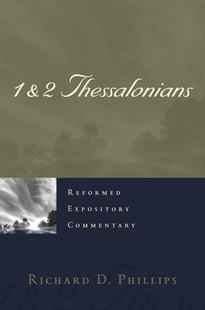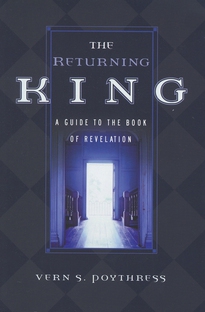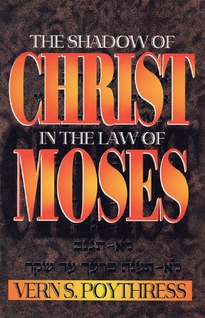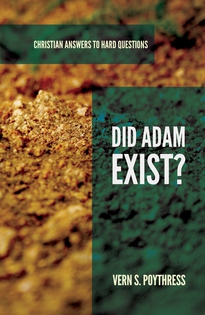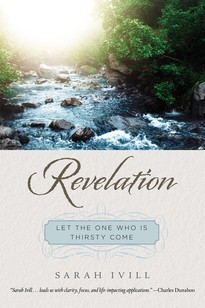Here’s a recap of our 3 new releases from the month of October.
Let the Earth Hear His Voice: Strategies for Overcoming Bottlenecks in Preaching God’s Word by Greg R. Scharf
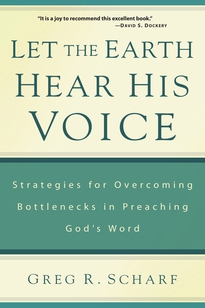
272 pages | Direct Price: $17.99 $13.50 | Church Ministry / Preaching | SAMPLE CHAPTER
SUMMARY
Much evangelical preaching fails to recognize that preachers speak for the same God who once spoke through prophets and apostles. Thus sermon preparation and delivery is a weighty responsibility—and can be richly blessed despite a preacher’s weaknesses.
Uniting theological encouragement with practical advice, Greg Scharf identifies eight common bottlenecks that can clog a sermon’s fruitfulness and faithfulness—humanly speaking—and gives diagnoses, strategies for addressing the problems, and exercises to overcome them. This is not a simplistic “how-to” book. Seminary students, occasional preachers, and seasoned pastors will be given profound tools and insights for preaching faithfully, clearly, and applicably, all while being reminded to pray for the Holy Spirit’s anointing of their work. A cross reference allows the book to be easily used alongside Bryan Chapell’s Christ-Centered Preaching.
ABOUT THE AUTHOR
Greg R. Scharf (DMin, MDiv, Trinity Evangelical Divinity School) is chair of the pastoral theology department and professor of homiletics at Trinity Evangelical Divinity School in Deerfield, Illinois. He is a past president of the Evangelical Homiletics Society and was previously pastor to three congregations in three countries.
ENDORSEMENTS
“If you are asking, ‘Why is my preaching not having the effect that God’s Word ought to have on its hearers?,’ I urge you to read this book with a torchlight on your own heart. There may yet be hope!”
—Conrad Mbewe, Chancellor of the African Christian University, Lusaka, Zambia
“Both preachers-in-the-making and seasoned shepherds who want people to hear God’s voice through their sermons will benefit from digesting this book slowly and thoughtfully.”
—Dennis E. Johnson, Professor of Practical Theology, Westminster Seminary California
“If the core conviction of this book were more widely believed and its clear strat- egies were more consistently practiced, preachers, preaching, congregations, and churches would be transformed.”
—Colin S. Smith, Senior Pastor, The Orchard Evangelical Free Church
“I think highly of this book! . . . Its strengths are biblical/theological grounding, practical exercises, and a lack of posturing. Greg Scharf takes his craft very seri- ously, but not himself. He models humility, zeal, and wisdom.”
—Jeffrey Arthurs, Professor of Preaching and Communication, Gordon-Conwell Theological Seminary
A History of Western Philosophy and Theology by John M. Frame
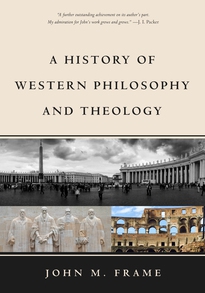
928 pages | Direct Price: $59.99 $45.00 | Hardcover | SAMPLE CHAPTER
Summary
Christians should evaluate philosophy by biblical criteria. This will shed greater light on the developments in the history of philosophy and better prepare us for the intellectual challenges of our time. The fall of Adam brought intellectual as well as moral corruption on the human race, and the effects of the fall can be seen in the work of philosophers, most of whom try to understand the world autonomously—through reasoning apart from God’s revelation. Some philosophers have appealed to God’s revelation, but their work has often been compromised with the wisdom of the world. Revelation should inform reason, and not the other way round. In the past, even Christian theology was corrupted by the movement toward intellectual autonomy, creating the tradition of liberalism, which has unhappily dominated academic theology down to the present day. But there is hope—a new generation of Christian thinkers take God’s Word seriously. Frame’s unique new contribution augments that process.
ABOUT THE AUTHOR
 John M. Frame (AB, Princeton University; BD, Westminster Theological Seminary; MA and MPhil, Yale University; DD, Belhaven College) holds the J. D. Trimble Chair of Systematic Theology and Philosophy at Reformed Theological Seminary in Orlando and is the author of many books, including the four-volume Theology of Lordship series.
John M. Frame (AB, Princeton University; BD, Westminster Theological Seminary; MA and MPhil, Yale University; DD, Belhaven College) holds the J. D. Trimble Chair of Systematic Theology and Philosophy at Reformed Theological Seminary in Orlando and is the author of many books, including the four-volume Theology of Lordship series.
ENDORSEMENTS
The endorsers for this book include (in alphabetical order):
James N. Anderson | John Barber | Bruce P. Baugus | Richard Bledsoe | Robert C. Cannada Jr. | D. A. Carson | Bryan Chapell | William Edgar | Richard B. Gaffin Jr. | Timothy George | Liam Goligher | R. J. Gore Jr. | Howard Griffith | W. Andrew Hoffecker | Frank A. James III | Peter Jones | Peter A. Lillback | Samuel Logan | Rod Mays | Esther Lightcap Meek | Eugene H. Merrill | Michael A. Milton | Joseph R. Nally | David Naugle | Marvin Olasky | J. I. Packer | Andrée Seu Peterson | John Piper | Vern S. Poythress | Richard L. Pratt Jr. | John Scott Redd Jr. | Mark P. Ryan | P. Andrew Sandlin | Kenneth Talbot | Justin Taylor | Erik Thoennes | Tim J. R. Trumper | Kevin J. Vanhoozer | Jeffery J. Ventrella | Greg Welty | Luder G. Whitlock Jr.
Here are a few of the endorsements:
“John Frame has done it again! In the lucid and comprehensive style of his Theology of Lordship volumes, he here presents a full overview of Western thought about knowledge of God as it must appear to all who receive Holy Scripture, as he does, as the record, product, and present reality of God speaking. And the solid brilliance of the narrative makes it a most effective advocacy for the Kuyper-Van Til perspective that in a well-digested form it represents. It is a further outstanding achievement by John Frame. The book deserves wide use as a textbook, and I hope it will achieve that. My admiration for John’s work grows and grows.”
—J. I. Packer
“This is the most important book ever written on the major figures and movements in philosophy. We have needed a sound guide, and this is it. Philosophy has many ideas and systems that are attractive but poisonous. Over the centuries people have fallen victim again and again. Frame sorts out the good and the bad with clarity and skill, using the plumb line of Scripture. Along the way he also provides a devastating critique of liberal theologies, showing that at bottom they are philosophies of human autonomy masquerading as forms of Christianity.”
—Vern S. Poythress
“Few in our day champion a vision of God that is as massive, magnificent, and biblical as John Frame’s. For decades, he has given himself to the church, to his students, and to meticulous thinking and the rigorous study of the Bible. He has winsomely, patiently, and persuasively contended for the gospel in the secular philosophical arena, as well as in the thick of the church worship wars and wrestlings with feminism and open theism. He brings together a rare blend of big-picture thinking, levelheaded reflection, biblical fidelity, a love for the gospel and the church, and the ability to write with care and clarity.”
—John Piper
“When I was a young man, I plowed through Bertrand Russell’s 1945 classic, A History of Western Philosophy. A couple of years ago I read the much shorter (and more interesting) work of Luc Ferry, A Brief History of Thought. Between these two I have become familiar with many histories of Western thought, each written out of deep commitments, some acknowledged, some not. But I have never read a history of Western thought quite like John Frame’s. Professor Frame unabashedly tries to think through sources and movements out of the framework (bad pun intended) of deep-seated Christian commitments, and invites his readers to do the same. These commitments, combined with the format of a seminary or college textbook, will make this work invaluable to students and pastors who tire of ostensible neutrality that is no more neutral than the next volume. Agree or disagree with some of his arguments, but John Frame will teach you how to think in theological and philosophical categories.”
—D. A. Carson
God’s Servant Job: A Poem with a Promise by Douglas Bond
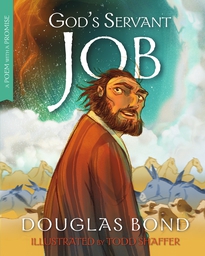
32 pages | Direct Price: $9.99 $7.50 | Fully Illustrated
SUMMARY
God’s Servant Job is a beautifully illustrated children’s story in verse that explores the gospel according to Job. Though the themes in Job are complex, Bond winsomely portrays the story’s essential, foundational theology in a poetic introduction for younger children. Although known for its supernatural encounters and advice both good and bad, the story of Job is most of all a story that reveals a glorious Redeemer who lives—showing how our children can have hope and comfort no matter what befalls them in this life.
ABOUT THE AUTHOR
 Douglas Bond is the author of a number of books of historical fiction and biography. He and his wife have two daughters and four sons. Bond is an elder in the Presbyterian Church of America, a teacher, a conference speaker, and a leader of church history tours. Visit his website at www.bondbooks.net.
Douglas Bond is the author of a number of books of historical fiction and biography. He and his wife have two daughters and four sons. Bond is an elder in the Presbyterian Church of America, a teacher, a conference speaker, and a leader of church history tours. Visit his website at www.bondbooks.net.
SAMPLE ILLUSTRATED PAGE


